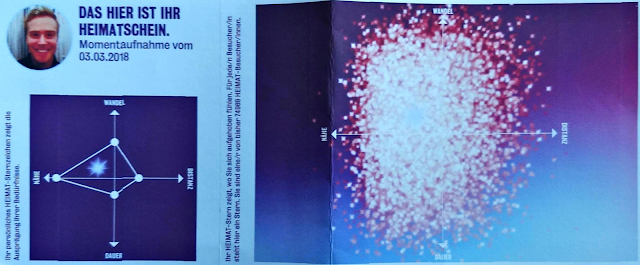Why the UN Migration Compact has everything to do with Justice
Ohne Heimat sein heisst leiden.
Fjodor Michailowitsch Dostojewski
The UN Global Compact for Safe, Orderly and Regular Migration (“the compact”) has been heavily featured in the news and instrumentalized by politicians for their own (anti-)migration agenda. This is, in itself, not surprising, as “the capacity to decide who can move, who can settle, where and under what conditions is increasingly becoming the core of political struggles” (Achille Mbembe, 2018, “The idea of a borderless world”).
What sparked my curiosity is how strongly even relatively moderate politicians in Switzerland argued against signing a, at least from the outside, relatively harmless looking international compact (e.g. WOZ, 2018, “Ein europäisches Gerücht”). To form my own opinion, I decided to read the whole text. I wanted to understand whether the concerns expressed by (right-leaning) politicians were actually valid.
1. “The pact undermines the sovereignty of states”
In fact, it does not. As one can easily see in the preamble to the text, the pact is a “non-legally binding, cooperative framework” that “upholds the sovereignty of states”.
2. “The pact encourages migration”
I don’t think so. The second objective of the pact is to “minimize the adverse drivers and structural factors that compel people to leave their country of origin”. That is the exact opposite of encouraging migration.
3. “The pact will lead to mass illegal migration into Western countries”
Let’s see. Objective 4 of the pact is to “ensure that all migrants have proof of legal identity and adequate documentation” and it goes on in objective 9, where it says that the international community should “strengthen the transnational response to smuggling of migrants” and in objective 10 “prevent, combat and eradicate trafficking in persons in the context of international migration.”
4. “The pact confuses refugees and normal migrants”
Absolutely not. The compact makes very clear that we should treat the two groups separately, on its first page it states: “migrants and refugees are distinct groups governed by separate legal frameworks. Only refugees are entitled to the specific international protection as defined by international refugee law.”
One could go on, but essentially this should demonstrate that the critique of the compact has nothing to do with (rational) arguments based on the text. Consequently, an apologia of the compact should also not try to defend the compact in this manner.
Earlier this year, I visited an exhibition on “Heimat” (see below for def.) in Lenzburg. The exhibition looked at the conceptualization of Heimat and what it means to different people. It impressively showed the socio-political dimension to one’s Heimat and the lenses we use to exclude or include other people in our society.
(My personal "Heimatschein" that I created during the exhibition)
The movement of people into a society represents a threat to the order and stability of that society’s concept of Heimat. Unsurprisingly, it is this fear of lost control and stability that the right is trying to feed. They seem to believe, “that the world would be safer, if only risks, ambiguity and uncertainty could be controlled and if only identities could be fixed once and for all” (Mbembe, 2018).
To me, these are the ingredients of an inherently unjust world. Firstly, “most people want to live where they ‘belong’” (Mbembe, 2018). That is, whenever possible they want to stay in their own Heimat. Mbembe recalls that in the 1980s it was possible for Cameroonian nationals to travel to France with their national identity card. Most people went to France and then back to Cameroon. People normally do not want to settle where they do not belong, but they want to be able to come and go and that is more likely to happen when borders are not rigid.
Secondly, where the conditions in one’s Heimat inhibit the realization of a good and happy life (however that is defined individually) or where they present a threat to the life of your loved ones and your own, it is natural (no, imperative) to pursue a better life through migration. Humans have done so for thousands of years and, until quite recently, Europeans have been at the forefront of such migration.
I therefore advocate for a world that extends the three core freedoms of liberal thought, free movement of capital, goods, and services, by a fourth freedom. Namely, the freedom of movement of persons. This must not manifest itself in the utopia of a borderless world, but it must be our task to reduce the inequality of today’s system.
You do not believe my words? Just go to an international airport and observe it yourself: while Africans usually fill the detention cells, we Western Caucasian Europeans enjoy passport privilege – “freely traveling the world, subject to no scrutiny or suspicion, waltzing through immigration points with a 90-day entry stamp and a smile” (Vik Sohonie, 2018, “The most powerful currency today”).
Injustice should never be tolerated and while the compact is not the solution to all of this, it is a step into the direction of eradicating injustice in global migration. If, like me, you believe that all humans should have equal opportunities to lead a fulfilling life and pursue their dreams, as long as they do not harm others, then you should join me in vehemently defending this compact.
___
I am using the German word “Heimat” instead of the English translation because to me, “Heimat” better reflects the sense of belonging that I attach to my “Heimat” than home or homeland would (especially because homeland seems to be connected to a fixed physical space, which is not how I would define “Heimat”)




Studierende, die sich eine vertrauenswürdige Hilfe beim Schreiben wünschen, sollten schreib-essay.com nutzen. Dort gibt es nützliche Informationen, die den gesamten Schreibprozess vereinfachen und für mehr Erfolg im Studium sorgen.
AntwortenLöschen